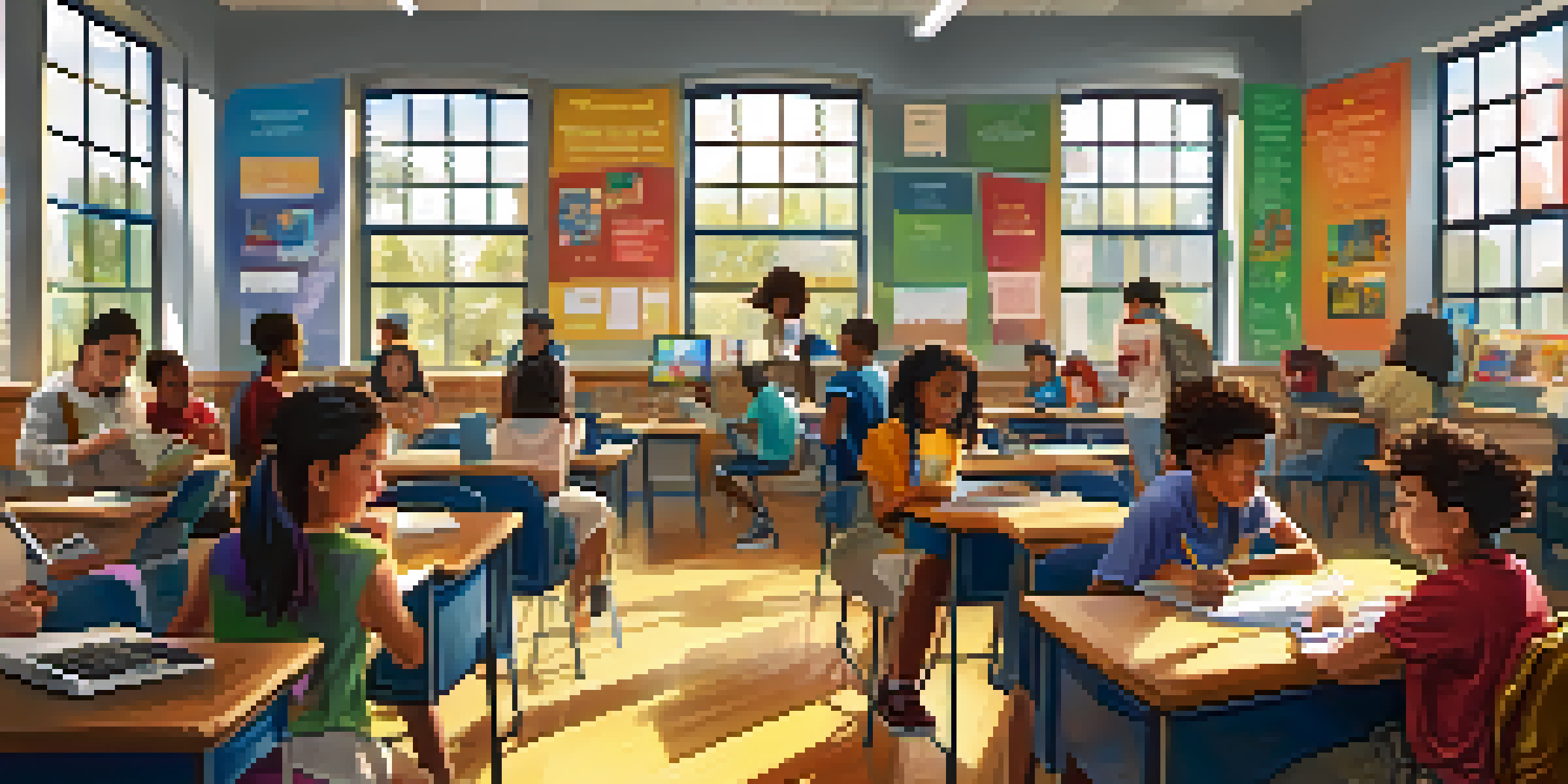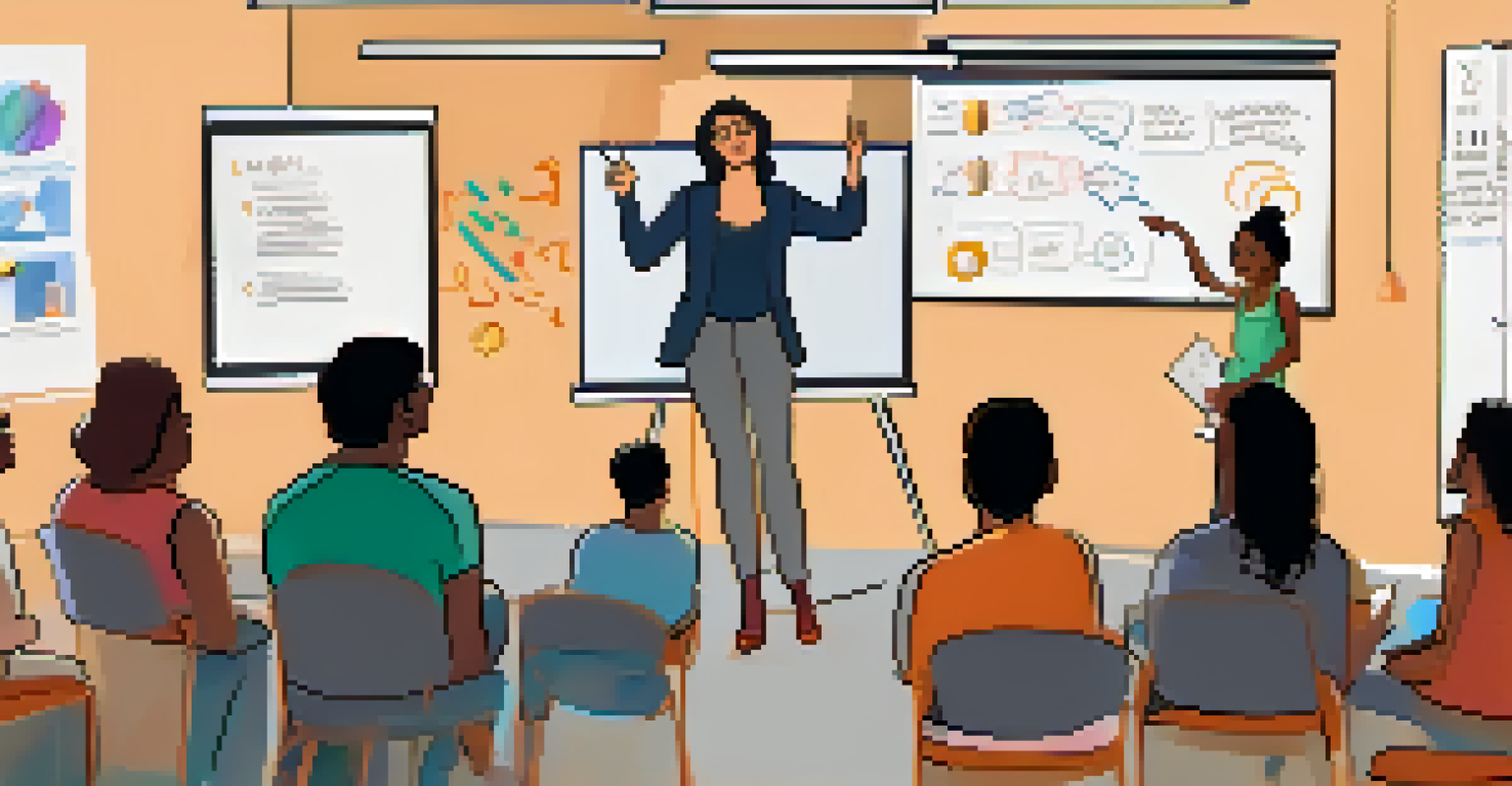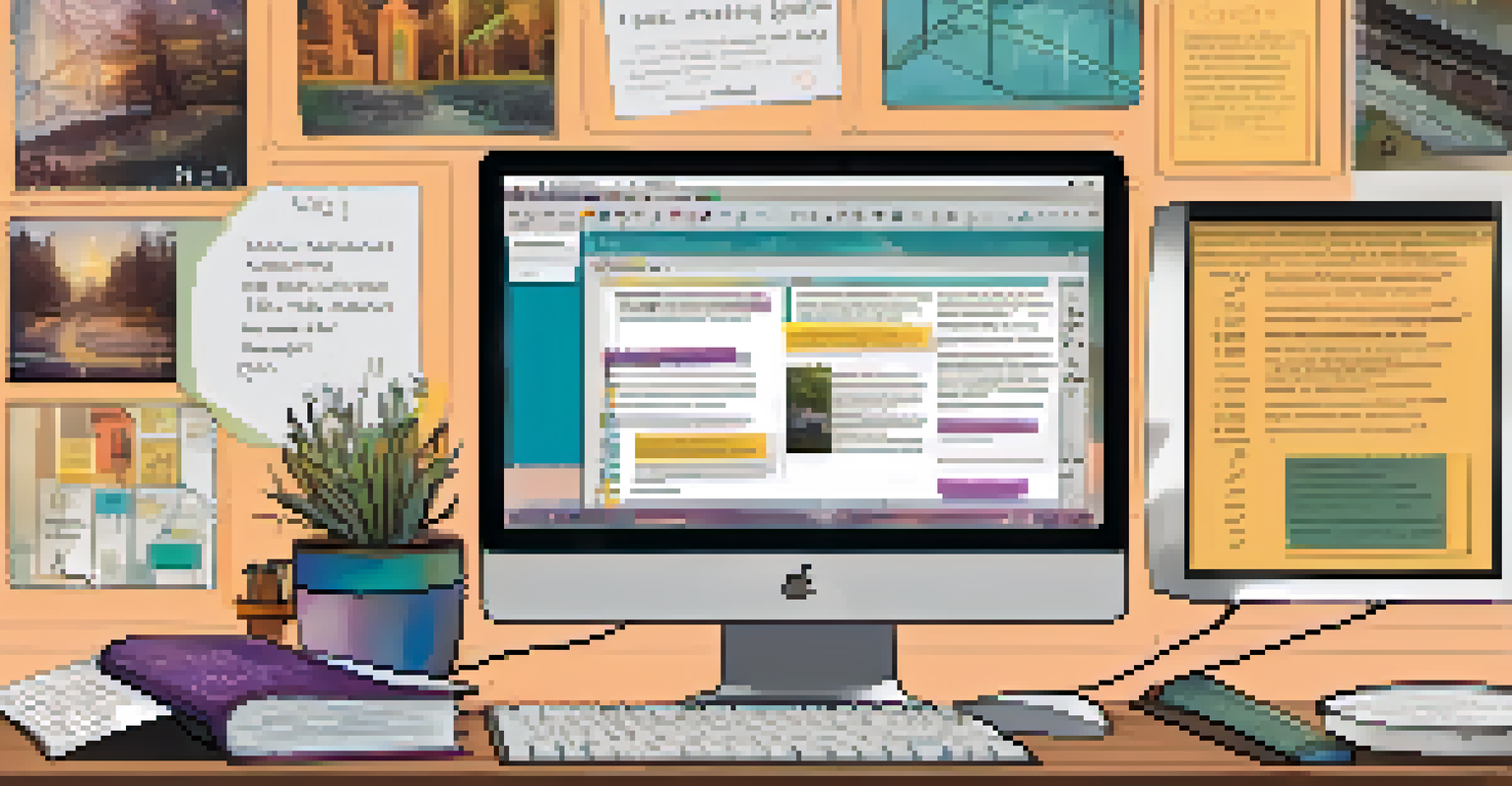Creating Digital Storytelling Workshops for Educators

Understanding the Power of Digital Storytelling
Digital storytelling blends the art of storytelling with digital media, allowing educators to convey messages in a captivating way. It's a potent tool that helps students connect with content on a deeper level. By utilizing images, audio, and video, stories become more engaging and memorable, sparking creativity and critical thinking.
Storytelling is the most powerful way to put ideas into the world today.
Imagine a classroom where students aren't just passive listeners but active creators. Digital storytelling empowers students to express their ideas and emotions, fostering a sense of ownership over their learning. This shift transforms traditional education into an interactive process that resonates with today's tech-savvy learners.
Moreover, digital storytelling can bridge cultural gaps, allowing diverse voices to be heard. When educators integrate these narratives into their lessons, they create an inclusive environment that celebrates differences and encourages empathy among students.
Setting Objectives for Your Workshop
Before diving into the logistics, it's crucial to define clear objectives for your digital storytelling workshop. What skills do you want educators to develop? Establishing specific goals will guide your workshop structure and ensure participants leave with valuable, applicable knowledge.

Consider objectives like enhancing multimedia literacy, improving storytelling techniques, or fostering collaboration among educators. These goals will help shape your content and activities, making sure they align with the needs of your participants. When educators see the relevance of the workshop to their teaching, they're more likely to engage fully.
Harness Digital Storytelling Power
Digital storytelling engages students by allowing them to create and connect with content creatively.
Additionally, setting measurable objectives allows you to assess the effectiveness of your workshop. This reflection not only improves future sessions but also helps you demonstrate the impact of digital storytelling in education.
Choosing the Right Tools and Resources
Selecting the right tools is pivotal in creating an effective digital storytelling workshop. There are numerous platforms available, ranging from simple slideshow applications to advanced video editing software. It's essential to choose tools that align with your objectives and are user-friendly for educators.
Digital storytelling is not about technology; it's about a way of teaching and learning that engages students in the creative process.
Consider tools like Adobe Spark for creating visually stunning stories or WeVideo for collaborative video projects. Providing a variety of options caters to different skill levels, ensuring all participants can find a tool that suits their needs. Additionally, sharing resources like templates and guides can enhance the learning experience.
Don't forget to include examples of successful digital stories in your presentations. These real-life examples can inspire educators and demonstrate the potential of the tools you recommend, making the workshop more relatable and impactful.
Designing Interactive Activities for Engagement
Engagement is key to a successful workshop, and interactive activities can make learning more dynamic. Incorporate hands-on projects where educators can create their own digital stories during the session. This not only reinforces learning but also provides them with a tangible outcome to take back to their classrooms.
Consider group activities that encourage collaboration, such as brainstorming sessions or peer feedback. Working together fosters a sense of community and allows educators to learn from one another's experiences. It also mirrors the collaborative nature of digital storytelling, where teamwork often leads to richer narratives.
Set Clear Workshop Objectives
Defining specific goals for your digital storytelling workshop helps ensure relevance and participant engagement.
To keep the energy high, include icebreakers that relate to storytelling. These fun, light-hearted activities can ease participants into the workshop, making them feel more comfortable sharing their ideas and creativity.
Incorporating Feedback and Reflection
Feedback is a critical component of any learning experience, and digital storytelling workshops are no exception. Encourage participants to share their thoughts on each activity and the overall workshop. This feedback can provide valuable insights into what worked well and what could be improved for future sessions.
Incorporating reflection activities, such as journaling or group discussions, can deepen participants' understanding of their learning. Having educators articulate their experiences helps solidify their knowledge and encourages them to think critically about how they can implement digital storytelling in their classrooms.
Additionally, consider creating a follow-up plan. This could include a survey sent out after the workshop to gather further insights or a follow-up session to discuss how educators have applied what they learned. Continuous support strengthens the learning process and fosters a community of practice.
Promoting a Collaborative Learning Environment
A successful workshop thrives on collaboration, both among participants and between the facilitator and attendees. Foster a sense of community by creating opportunities for networking and sharing best practices. This collaborative atmosphere can lead to lasting connections that extend beyond the workshop.
Encourage participants to share their own storytelling experiences and challenges. This exchange of ideas not only enriches the workshop but also helps educators realize they're not alone in their journey. By learning from one another, they can discover new strategies and approaches to digital storytelling.
Encourage Collaboration and Feedback
Fostering a collaborative environment and incorporating feedback enhances learning and builds a supportive community.
Consider creating a shared online space where participants can continue discussions and share resources after the workshop. This ongoing collaboration can enhance their skills and inspire innovative storytelling techniques in their teaching.
Evaluating the Success of Your Workshop
After the workshop, it's essential to evaluate its success and impact on participants. Use surveys or informal discussions to gather insights on what educators found valuable and what could be improved. This feedback will help you refine future workshops and ensure they meet the evolving needs of educators.
Additionally, assess the effectiveness of the tools and techniques introduced during the workshop. Are participants able to implement digital storytelling in their classrooms? Gathering examples of their work can serve as evidence of success and inspire future attendees.

Finally, celebrate the achievements of your participants. Recognizing their efforts fosters motivation and encourages them to continue exploring digital storytelling. Acknowledgment can be as simple as a follow-up email highlighting their creations and inviting them to share their experiences.